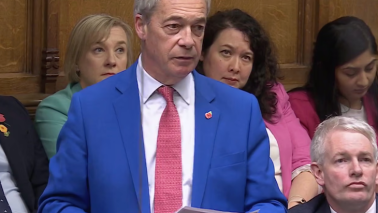Election post-mortems are always interesting and often fun. Take the speech Ed Miliband made to launch his campaign for the Labour leadership. While paying due attention* to Labour’s achievements in government, it still reads as an indictment of the party’s record in office. Consider these snippets:
We must start by understanding the country we seek to lead again.
…[T]he truth is that as government wore on we lost that sense of progressive mission and of being in touch with people’s concerns.
As time wore on we came to seem more caretakers than idealists—more technocratic than transformative.
And when political parties lose that sense of idealism and mission they become much more vulnerable to the currents of events.
For us, increasingly, because we lost that sense of progressive mission, we found ourselves beached, unable to speak to too many of the concerns of the people of our country.
…[T]he truth is that over time the connection between our sense and the people’s sense of fairness frayed and we need to acknowledge that. Boilerplate regret? Perhaps. But if all this is true and if Miliband thinks it all true then presumably it would still be true even if Labour had been returned to power? Or can such truths only be revealed by defeat?
James wrote that his delivery was impressive and doubtless it was. But the speech reads poorly and on this evidence anyone looking for the Vision Thing won’t find it with the younger Miliband.
On the contrary, Miliband’s speech reads as though the failure was that Labour wasn’t Labour enough. He would seem to be a soft-Bennite at heart. As Hopi Sen points out:
My biggest problem with Ed’s speech was that it had little or nothing to say about the biggest challenges facing the country – the challenge of growth and of private sector job creation the economy, deficit and impact on servicee.
Quite. Indeed the ruinous state of the public finances received nary a mention. Perhaps the punters wouldn’t have enjoyed that but at least nodding to that uncomfortable truth would have demonstrated a certain seriousness.There was liitle mention of the economy other than in terms of the need to restrain of markets, the limits of globalisation, limit immigration. What about policies to secure economic growth, reduce deficits, protect public services?
Fairness demands that one acknowledge that it’s asking a lot from politicians to expect them to think about all this within days of being hoofed from office. (Which is also why Gordon should have remained leader until after the summer recess, no matter how much this might have pained him. Then again, as one reform-minded Labourite told me earlier this year “If Gordon thought about the party’s interests he’d have gone last year….”)
Nevertheless, Ed Miliband’s answer to most things seems to be more of the same but, this time, with added conviction. That said, there were moments in which he seemed to accept that some of the greatest criticisms of Labour had some merit. Thus:
OK! But since the rest of his speech is, essentially, a plea for the state to do more everywhere and in everything one may reasonably doubt whether this is anything more than One of Those Things Politicians Feel They Probably Ought To Say.We need to show we are the people who can reform the state to make it more accountable and give power away.
And there was sleight of hand too. For instance:
This is an interesting way of putting it. The problem with Labour’s attitude to civil liberties** (in England, mainly) was not, apparently, the policies themselves but the “sense” of casualness that surrounded them. There was such a sense and it was grounded in an entirely reasonable analysis of the evidence available. Casual might be one way of describing Labour’s attitude to ancient rights and customs and freedoms; hostile might be another, more accurate, way of putting it.And also on issues of civil liberties there was too much of a sense that we were casual when it came to the relationship of the state and the individual.
Finally, there was this:
Sitting in the peanut gallery, it is easy to mock this. Easy and right. In general terms people who have been members of a single political party their entire adult life without, as far as one can tell, ever questioning the wisdom of this or rebelling and tearing up their bloody membership card, ought not to be trusted.I joined this party at the age of 17.
*Up a point. Miliband Minor didn’t mention any of the things I thought Labour did quite well. Then again I’m not the target audience and my ideas about Labour’s achievements probably wouldn’t help anyone win the party leadership.
**While these matters are important to me I don’t pretend that they made the difference in the election.






Comments